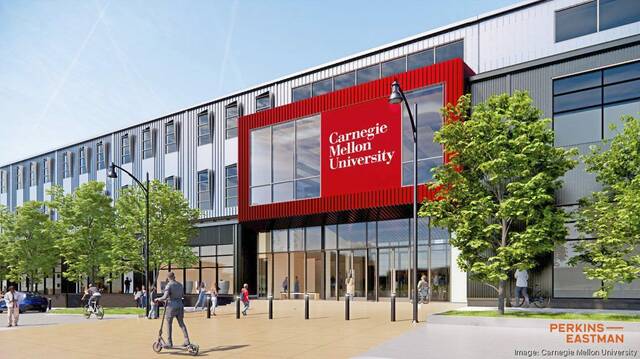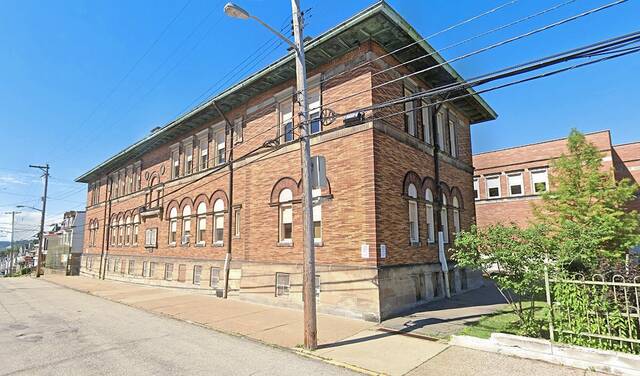Pittsburgh City Council made clear Wednesday it would not rubber stamp what its members consider an unrealistic 2026 budget proposal by outgoing Mayor Ed Gainey and might instead craft wholesale changes.
Councilman Anthony Coghill, D-Beechview, said he could not vote for Gainey’s $680 million spending plan as presented.
“It’s just unrealistic,” he said.
Council President R. Daniel Lavelle, D-Hill District, said he doesn’t believe the mayor’s proposal sets aside enough money to account for pay raises for unions that will get new contracts next year, including the Fraternal Order of Police.
Gainey’s spending plan does not include a tax increase, layoffs or cuts to city services.
Peter McDevitt, council’s budget director, said the package also does not include enough money to account for overtime payments, utility bills and other core needs.
“If we just keep kicking the can down the road, it’s going to be really, really hard to deal with it,” McDevitt said. “It’s going to be difficult to just fund core services.”
Coming up with a feasible spending plan for next year, McDevitt said, will be a “tall task.”
Problem areas
During his annual budget overview, McDevitt flagged certain areas. McDevitt said the Gainey administration’s spending estimates on utility bills, for example, are about $6.5 million short.
“They’re unrealistic now and they’re only going to be worse in the outer years,” he said.
The budget proposal allocates about $8 million less than requested for demolitions of vacant and abandoned buildings. The paving budget is proposed to shrink by about $3 million compared to this year.
Kierston Walmsley, council’s assistant budget director, added that vehicle maintenance and legal judgements appear to be “underfunded.”
She also reiterated concerns about overtime costs, an area that has been raising alarms for the last year. Pittsburgh is on track to outspend its overtime budget by about $20 million this year.
McDevitt estimated the city next year will likely spend at least $10 million more on overtime for public safety alone than budgeted.
And the 2026 NFL Draft, which is coming to the city in April, will only increase overtime spending, McDevitt said.
The budget does not account for any influx in public safety overtime for the three-day event, which is expected to bring hundreds of thousands of football fans to town.
Officials have pegged next year’s vehicle fleet expenses at less than half of what the city should spend each year to replace aging and high-mileage fire trucks, ambulances, snowplows and other vehicles.
The mayor’s proposal also scraps 48 unfilled positions.
Each city department will present its budget requests to council over the coming weeks. McDevitt said many of them will tell council the budget doesn’t meet of all their needs — but the city currently can’t fund everything.
“Every department that comes to this table is going to tell you that they need more funding,” McDevitt said.
Olga George, a spokeswoman for Gainey, defended the spending plan.
“We made some tough but necessary choices to deliver a balanced budget — one that doesn’t raise taxes, doesn’t cut essential city services, and doesn’t include layoffs for city workers,” George said in a written statement.
“This administration worked diligently to keep residents at the center of every decision by prioritizing public safety, neighborhood investment, equitable development, and long-term fiscal responsibility.”
‘Skin of our teeth’
McDevitt criticized Pittsburgh’s ongoing practice of not counting some expenses as operating costs to make the budget balance on paper, even as the city spends more money than it brings in.
That is not considered best practice, McDevitt said, and covers up the fact the city is outspending its revenues.
“This is a workaround to balance the budget on paper, even though we’re spending more each year than we’re actually bringing in,” McDevitt said.
Those expenses include a $10 million annual allocation to the Stop the Violence program and yearly payments on a controversial bond to fund affordable housing efforts.
If the city counted those in its budget, Gainey’s 2025 proposal would have had a deficit of more than $22 million instead of a paper surplus of $163,000.
This year, McDevitt said, Pittsburgh is scraping through “by the skin of our teeth.”
Gainey’s budget for next year anticipates a roughly $2.5 million surplus. That, however, is only on paper.
It would actually have a deficit of more than $20 million if other expenditures — like the Stop the Violence and Housing Opportunity Fund allocations — were counted, McDevitt said.
Expenses that are not budgeted are paid for with any surplus and the city’s reserve fund.
Councilwoman Erika Strassburger, D-Squirrel Hill, said she was requesting a legal opinion on whether the current budget practice is acceptable.
That budgetary sleight of hand and others are akin to “budget math magic,” South Side Councilman Bob Charland said.
“We were not given a budget that took this process seriously,” Charland said. “It’s a real shame, but that’s our job to fix it over the next two months or so.”
‘We’re part of the problem’
Gainey had remained upbeat when delivering his final budget address Monday, largely glossing over financial woes to focus instead on what his administration accomplished over the last four years.
Jake Pawlak, his top advisor and head of the Office of Management and Budget, dismissed concerns about overtime spending and the fact the budget accounts for fewer firefighters than are currently on staff.
But council members on Wednesday struck a more cautious tone when talking about city finances and said they would consider sweeping revisions.
Officials last week held a meeting to discuss options for bringing in more cash, including a real estate tax hike, a new tax on unearned income or a renewed plea to major nonprofits for payments in lieu of taxes.
Councilman Bobby Wilson, D-North Side, said the administration last year convinced him and his colleagues they could reduce public safety overtime costs to align with the budget.
But after watching the city outspend the overtime budget by millions, he’s now approaching things with eyes wide open.
“I’m definitely taking a different look at this,” Wilson said.
Wilson acknowledged council has not made major changes — like completely rewriting overtime estimates — during his tenure.
“We’re all sitting here now blaming the administration when we allowed it to happen all of these years,” said West End Councilwoman Theresa Kail-Smith, who was the lone council member to vote against the 2025 budget. “We’re part of the problem. We need to be the solution.”
Councilwoman Deb Gross, D-Highland Park, reminded colleagues that council has authority over the budget and could completely dismiss Gainey’s spending plan to craft a new one.
“This is both the power and the responsibility here,” Gross said. “This is going to be a season of us having to say no to some things.”








